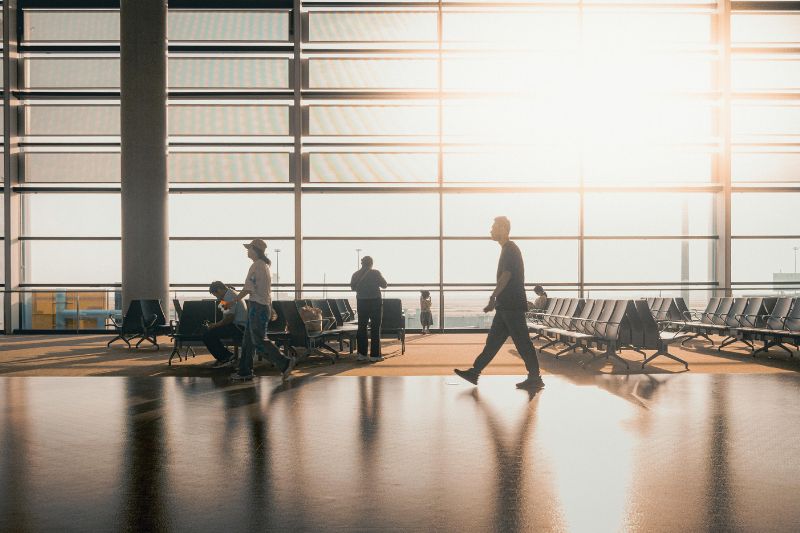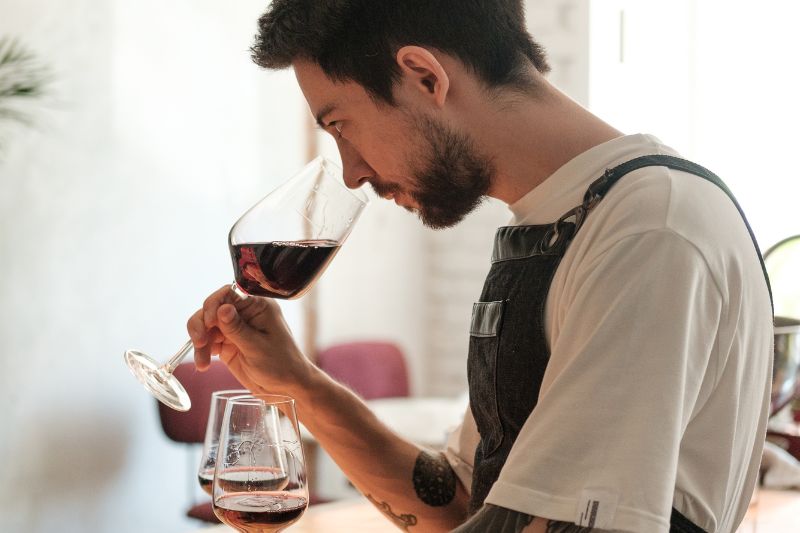Corporate luxury isn't what it used to be.Gone are the days when a standard five-star hotel stay or identical business class flight constituted premium service. Today's discerning executives demand something rather different, experiences that speak directly to their individual preferences, cultural sensibilities, and business objectives.
This transformation reflects a broader shift in how we perceive value in the corporate world. Personalisation has become the new currency of luxury, with companies increasingly recognising that their most valuable clients deserve services as unique as their business challenges. Italy, with its wide variety of landscapes, traditions, and specialisations, has become a clear example of how different offerings can suit almost any corporate need. There’s something for almost every type of business event, depending on what a company is trying to achieve.
Why "standardised" luxury no longer cuts it
The usual approach to corporate hospitality - same boardrooms, same conference centres, same networking events - is starting to feel tired. Executives notice when everything looks and feels the same. It doesn’t stick, it doesn’t inspire. Research from McKinsey Global Institute shows that personalised experiences generate roughly 40% more revenue than standardised offerings in the luxury sector. Companies are seeing that putting effort into tailored corporate services can make a real difference. This isn’t only about keeping clients happy - though that matters - it can also influence tangible business outcomes.
.jpg)
The psychology behind personalised luxury
There's something profound happening here. When executives receive genuinely tailored experiences, they feel valued, they become more engaged, more creative, more willing to forge meaningful business relationships. Neuroscience research suggests that personalised environments activate reward centres in the brain, creating positive associations that extend far beyond the immediate experience.
Consider this: would you rather attend a meeting in a generic conference room that could be anywhere from Manchester to Munich, or in a carefully selected Neapolitan villa where the surroundings complement your specific industry focus and company culture? The answer seems rather obvious when put like that.
Italy's diverse landscape as a luxury playground
Italy presents perhaps the world's most compelling argument for diversified luxury experiences. This isn't merely about geography (though the country's varied landscapes certainly help). It's about centuries of regional specialisation that have created distinct pockets of expertise across virtually every conceivable business sector.
From Milan's fashion and design houses to Bologna's culinary innovation centres, from Venice's historical preservation techniques to Turin's automotive engineering excellence, Italy offers corporate clients access to industry-specific knowledge and experiences that simply cannot be replicated elsewhere.
Regional specialisations that matter to business
Northern Italy
Northern Italy's industrial heritage provides unparalleled access to manufacturing expertise, particularly in automotive, aerospace, and precision engineering sectors. Not what you were expecting from Italy? And yet, companies like Ferrari, Lamborghini, and Pirelli haven't just built businesses here—they've created entire ecosystems of knowledge that visiting executives can tap into.
Central Italy
Meanwhile, Central Italy's artisanal traditions offer something rather different. The leather craftsmen of Florence, the ceramic artists of Deruta, and the textile specialists of Prato represent centuries of accumulated wisdom in luxury goods production. For companies in fashion, retail, or premium consumer goods, these regions provide insights that no business school could ever teach.
.jpg)
The south tells another story
Campania, Sicily, Apulia, Basilicata and Calabria, which are Italy's southern regions are doing a lot with agriculture. There’s sustainable farming, food tech, innovation. Companies in these industry - sustainability, food science, agri-tech - pick these regions for retreats or planning sessions. It’s quieter than the north, but there’s real substance. You can feel it when you visit.
Cultural diversity driving business innovation
Italy’s regions aren’t just for sightseeing. Their customs and traditions show different ways of working, different strategies, and, in short, a whole new Weltanschaung. In the north, businesses are structured, methodical. In the south, relationships and improvisation are more important. Both approaches have lessons, some obvious, some you notice only after a while.
Planners often try to match company culture with a region. It’s not exact. Sometimes it works better than expected, sometimes less so. Mostly, it’s about finding a place where the way the company operates fits with local style.
Crafting bespoke experiences that deliver results
Booking a pretty venue isn’t enough. The best experiences start with understanding what a company wants, what a region can actually offer. Planners connect business goals to local resources. That’s where it clicks. And this is precisely where our specific expertise comes in: you shouldn't just venture into a business ecosystem you have no experience of and hoping to find the perfect match in terms of expertise, venues, location, activities, and experiences. You should work with local experts like us, in order to find the most appropriate partners, vendors, and spaces for your specific business needs. Corporate luxury doesn't just happen: you have to work for it!
The importance of authentic local partnerships
Authenticity matters. Executives notice staged experiences from a mile away. The most successful retreats come from real partnerships with local businesses, artisans, or cultural institutions.
For example, a tech company might collaborate with a vineyard, learning how smart devices or analytics have been used to innovate production methods, honouring tradition while practicint innovation. The wine, however counterintuitive this might seem, is not your primary focus here: learning and innovation are - or at least they should be. Much in the same way, fashion brands sometimes choose to work directly with local textile producers, exploring sustainable practices, traditional techniques, or new materials that could inspire modern design. Whether you take advantage of local producers to craft amazing team building experiences or simply to treat your employees through luxury retreats, you should always strive to find partners that match your team's interests, passions, and energy.
How do you measure the impact of personalised experiences?
Companies that invest in these tailored experiences invariably see significant results. And those results are multifaceted: engagement goes up and so does their bottom line, while client relationships strengthen and creativity rises. Consulting firms have been known to report that such sessions, when held in carefully chosen Italian venues with customised programming, produced around 25% more actionable insights than standard sessions. Personalisation showed real impact.
Technology enabling hyper-personalisation
Technology is bigger in these experiences now. AI, predictive analytics, preference tracking. Planners can anticipate needs, sometimes before anyone asks. It’s not perfect, but it makes the experience smoother, more personal, more real. Italian companies specialising in corporate luxury services have embraced these technologies enthusiastically, perhaps because they recognise that technology can amplify rather than replace human insight and creativity. The goal isn't to automate the personal touch, but rather it is to free human professionals to focus on higher-level strategic thinking about experience design.
Data-driven personalisation without losing the human element
The most successful applications of technology in this space enhance rather than replace human judgment. Sophisticated CRM systems track client preferences, dietary requirements, communication styles, and past experience feedback, but skilled professionals interpret this data to create experiences that feel spontaneous and organic rather than algorithmically generated.
Italian hospitality professionals have proven particularly adept at this balance, perhaps because their cultural background emphasises both attention to detail and genuine warmth in service delivery. They use technology as a tool to better understand their clients, not as a substitute for authentic human connection.
Looking ahead at the future of corporate experiences
The trajectory seems clear enough. Corporate luxury is moving inexorably towards greater personalisation, more authentic experiences, and deeper integration with local cultures and business ecosystems. Italy's diverse regional offerings position it particularly well for this evolution. We’re likely to see more growth in experiences that mix business with cultural immersion, and professional development with personal enrichment. The companies that succeed in corporate luxury will be the ones that can genuinely connect these usually separate worlds.
.jpg)
Those that embrace this shift towards truly personalised corporate experiences often gain a real edge. Not just in client satisfaction—though that matters a lot—but also in attracting and keeping top talent. People increasingly expect their professional experiences to be as carefully considered as their personal ones. Italy’s wide range of landscapes, cultures, and specialisations means almost any corporate need can be met with authenticity. From the industrial innovation of the north to the agricultural creativity of the south, from centuries-old artisanal traditions to modern technological advances, the country offers experiences that are hard to find anywhere else.
The future belongs to those willing to move past standardised luxury into genuinely personalised experiences. In Italy, that future is already here.



